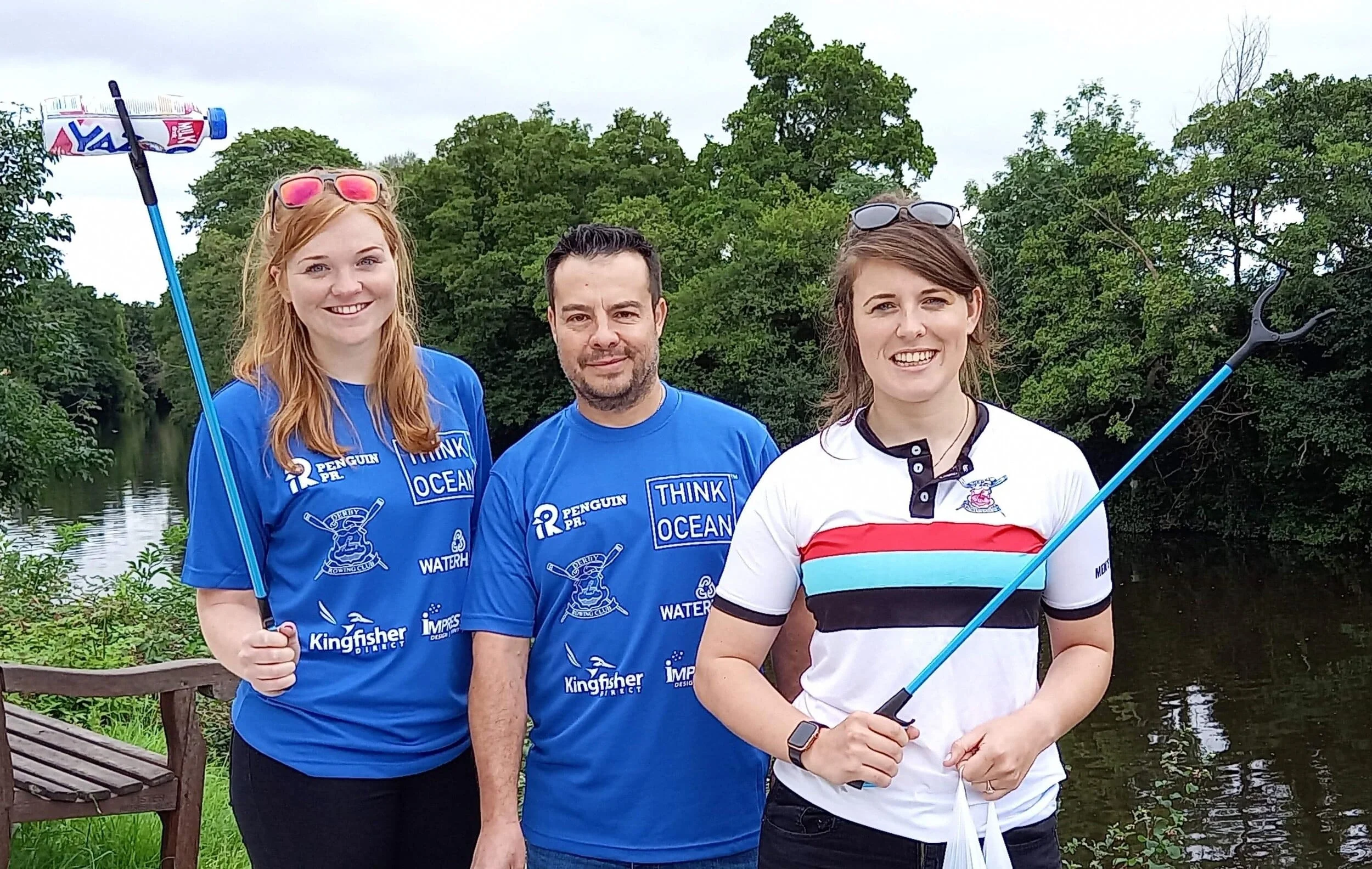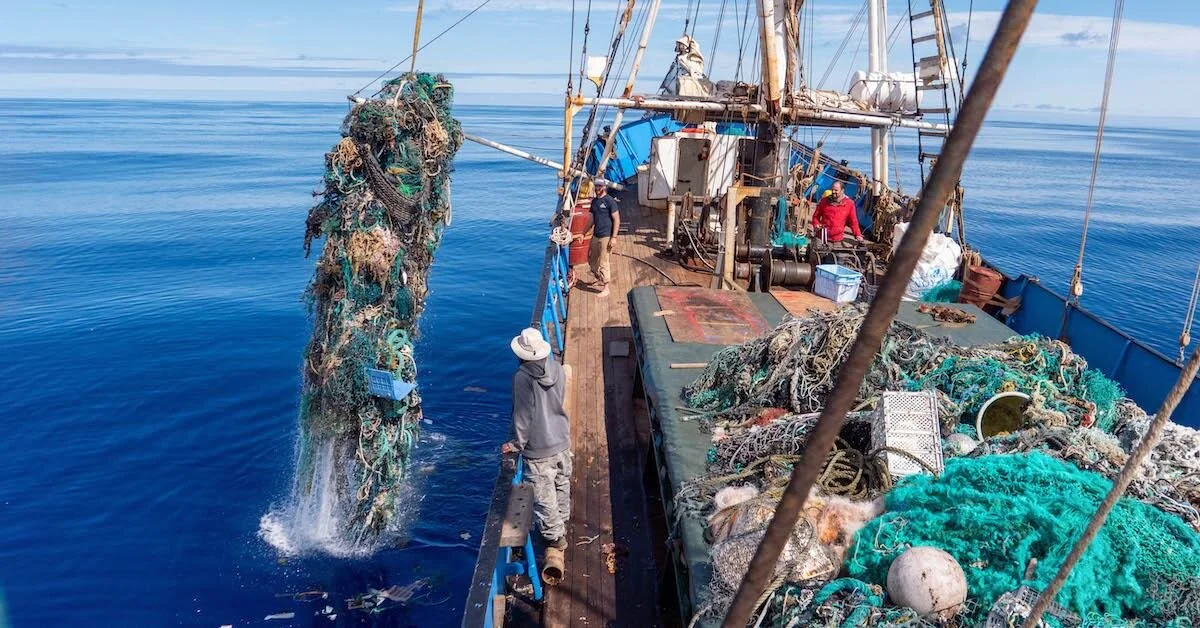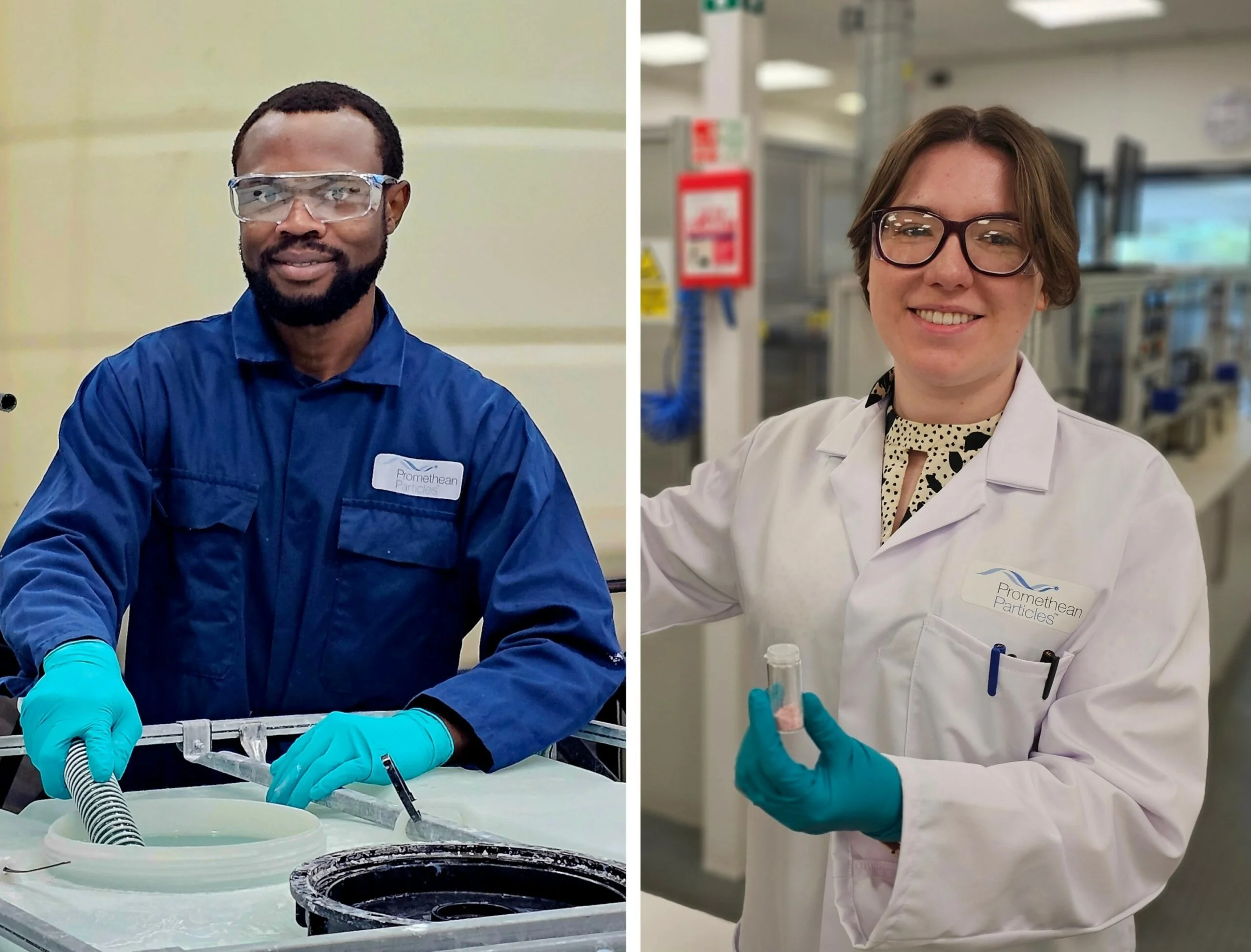T-shirts made from plastic fished out of the sea off India will be worn by volunteers working at this weekend’s classical music concert as part of a campaign designed to raise awareness about how the litter we drop inland can end up in the world’s oceans.
City charity Think Ocean is supplying dozens of the bespoke T-shirts, which have been woven from yarn made out of molten recycled plastic pellets, to its volunteers who will be on duty at the Hannells Darley Park Concert, which takes place on Sunday evening.
Earlier in the day, members of the charity, including its co-founder, Hugo Valdes-Vera, will be joining forces with members of the Derby Rowing Club and the University of Derby to carry out a huge litter-pick along the banks of the river and in the water itself as it flows through the park.

From left, Sarah Rouke, vice captain and welfare officer at Derby Rowing Club, Hugo Valdes-Vera, co-founder of Think Ocean charity and Martha Nutkins, captain of Derby Rowing Club, will be wearing T-shirts made from plastic fished from the sea when they take part in a litter pick before the Hannells Darley Park Concert on Sunday.
Their focus will be retrieving plastic bottles to show the scale of littering in our midst and remind people that even bottles dropped in the centre of Derby, some 70 miles from the sea, can still end up bobbing up and down on ocean waves if they get washed into the Derwent, whose waters join the River Trent near to Long Eaton and eventually empty into the Humber Estuary.
Hugo, who is originally from Chile, got involved with the charity in 1992 originally to stop the hunting of whales in the South Pacific.
They achieved their aim with the creation of the Southern Ocean Whale Sanctuary, after which Hugo moved to the UK and switched his focus to raising awareness of the effect plastic is having on the world’s marine environment.
It is estimated that 8 million tonnes of plastic ends up in our oceans every year, making up 80% of all marine debris and including up to 34 million newly sold plastic bottles.
Not only does ocean plastic cause severe injuries and death in wildlife, which either ingest the plastic or get tangled up in the debris, it also impacts humans by threatening tourism, contributing to climate change and affecting the safety and quality of seafood.

Fishermen haul plastic from the sea in India as part of a project involving Derby charity Think Ocean. This is then shredded and turned into pellets, which are then melted down, spun into yarn and woven into fabric for T-shirts.
Hugo says that although this is a worldwide problem, solving it begins at everyone’s homes, because the vast majority of plastic that ends up in the sea arrives there via rivers.
While the biggest polluting rivers are in developing countries, the UK plays its part, with an estimated 234 million plastic bottles littering its streets every year.
Think Ocean is working with a number of organisations which recycle ocean plastic into clothing and it is looking to launch its own range of T-shirts, each of which will come with a label telling the wearer where the plastic used to make the fabric came from.
In the case of the Darley Park T-shirts, the precise location is 13°01’03.9″N 80°16’33.3″E – which is Chennai, India, where local fishermen are paid to retrieve plastic from the sea.
Once it is brought to shore, it is sorted, cleaned and shredded and melted into pellets. These are then reheated and spun into yarn, which is then woven into material.
Hugo said: “We’re very excited to have been given this opportunity to showcase this material at such a high-profile event in order to raise awareness of what is undoubtedly one of the biggest problems ever created by humans.
“We’re very aware that Derby is many miles from the sea, but even plastic bottles that are dropped in the parks or streets can end up in the sea because there is a high chance they can get washed into the streams, canals and the River Derwent.
“We will see the problem for ourselves when we carry out the clean-up on the morning of the concert, while there will also be a video talking about our work during the concert itself.”
Think Ocean is currently working on a number of projects designed to raise awareness of and help alleviate the problem of plastic waste, including coastal litter picks, international expeditions and creating a river clean-up machine which can scoop up and remove plastic bottles as they float downstream.
To find out more about Think Ocean visit www.thinkocean.earth






